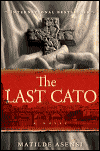Children's Songs
sentada en su verde limón.
Con el pico recoge la paja,
con la paja recoge la flor.
¡Ay Dios! ¿Cuando veré a mi amor?
¡Ay Dios! ¿Cuando veré a mi amor?
Translation:
There was a colorful bird
Sitting atop her green lime
With her beak she picked up the straw,
With the straw she picked up the flower.
Oh Lord! When will I see my beloved?
Oh Lord! When will I see my beloved?
************************************************************
Tengo una vaca lechera,
no es una vaca cualquiera.
Me da leche condensada,
¡Ay que vaca tan salada.
Tolón, tolón. Tolón, tolón.
Translation:
I have a milk cow
It isn’t just a regular cow.
She gives me condensed milk
Oh what a sassy cow!
Tolon, tolon.
Tolon, tolon.
*************************************************************
Soy un chino capuchino mandarín chín chín.
Translation:
I’m a Mandarin capuchin Chinese man, an, an
From the time, from the time of Japan, an, an
My ponytail is of regular size, ize, ize
And with it I enjoy myself endlessly.
As I passd by a coffee bar, ar, ar
A Chinese girl pulled on my ponytail, ail, ail
"Look Chinese girl I don’t want to argue", yu, yu
I’m a Mandarin capuchin Chinese man", an, an
*************************************************************
Un elefante, se balanceaba, sobre la tela de una araña.
Como veía, que resistía, se fue a buscar a otro elefante.
Dos elefantes, se balanceaban, sobre la tela de una araña.
Como veían, que resistía, fueron a buscar a otro elefante.
Tres elefantes, se balanceaban, sobre la tela de una araña.
Como veían, que resistía, fueron a buscar a otro elefante.
(etc.)
Translation:
One elephant swung on a spider web.
When he saw that he didn’t fall, he went to look for another elephant.
Two elephants swung on a spider web.
When they saw that they didn’t fall, they went to look for another elephant.
Three elephants swung on a spider web.
When they saw that they didn’t fall, they went to look for another elephant.
(etc.)
*************************************************************
OK - that was hard! I kept trying to make the translation fit the rhythm of the song - it didn't work! Trust me they're much better in Spanish - and when you're six!
Labels: children's songs, Language Week 2007







9 Comments:
I've never heard any of these. They aer hysterical. I particularly like your translation of the Chinese man an an!
Good for you! I imagine that was VERY hard. :)LMAO :)
Bravo! I loved reading about these songs. I'd give a nickel and a PopTart to hear you sing them in person! :)
I certainly think you had much better songs that I ever did!
Ahhh, wow! What a sassy cow! When we grow up in a somewhat homogenous culture, we tend to think that everybody else learned the same children's songs; it's wonderful to hear ones from somebody else's childhood!
And of course they come across as incredibly cheesy.
I bet us (English) Canadian kids learned the same songs that American kids did. We did learn one about "The mighty Gitchee-Manitou" which might have been Canadian-centric, though, and I was always fond of "When an Austrian went yodelling on a mountain top high..."
There was something so great about those children's songs with endless verse variations!
I would love to hear those songs! That's awesome! Just wanted to say thanks for the birthday wishes too.
Condensed milk? Crazy Cubans...
Hey, I was once at a birthday party and they all sang some birthday song that was from a popular spanish language cartoons. I don't remember all the words--my Spanish is too sketchy--but there was something about the wise men showing up at the birthday party or something.
Ring a bell?
My mother taught me those songs as a child, and taught them to my daughter as well. Oddly enough, the elefante song, believe it or not has an english version! My daughter learned it at her Montessori school.
An Elephant Went Out To Play
An elephant went out to play
On a spider web one day
He (she) was having so much fun
He (she) invited another one
I wonder if you ever heard the song of Pin Pon? If you have, watch Shrek, with spanish dubbing and go to the scene where gingerbread man is being tortured. Rather than referencing the Muffin Man, as he does in English, he references Pin Pon!
Ok... on that note...
nice blog!
It has been a pleasant surprise to find your translations of these Spanish songs for children. My English teacher translated for us "Tengo una vaca lechera" this way: "I have a milky cow. It is not a cow whichever...". However, I am unable find a similar translation using "whichever". What do you think about it?
Many thanks in advance for your comments.
Antonio,
I'm glad you enjoyed the translations. The translation provided by your teacher is incorrect in that it doesn't capture what the song is saying. See my translation for "Tengo Una Vaca Lechera" in the post. "Vaca lechera" does not translate to "Milky cow", "Milk cow" is the correct translation because we're talking about a cow used for milking. And while "cualquiera" can be a translation, it isn't correct in this case. In this case we're saying she's a special cow, so "not a regular cow" is preferable.
Hope that helped.
Hilda
Post a Comment
<< Home